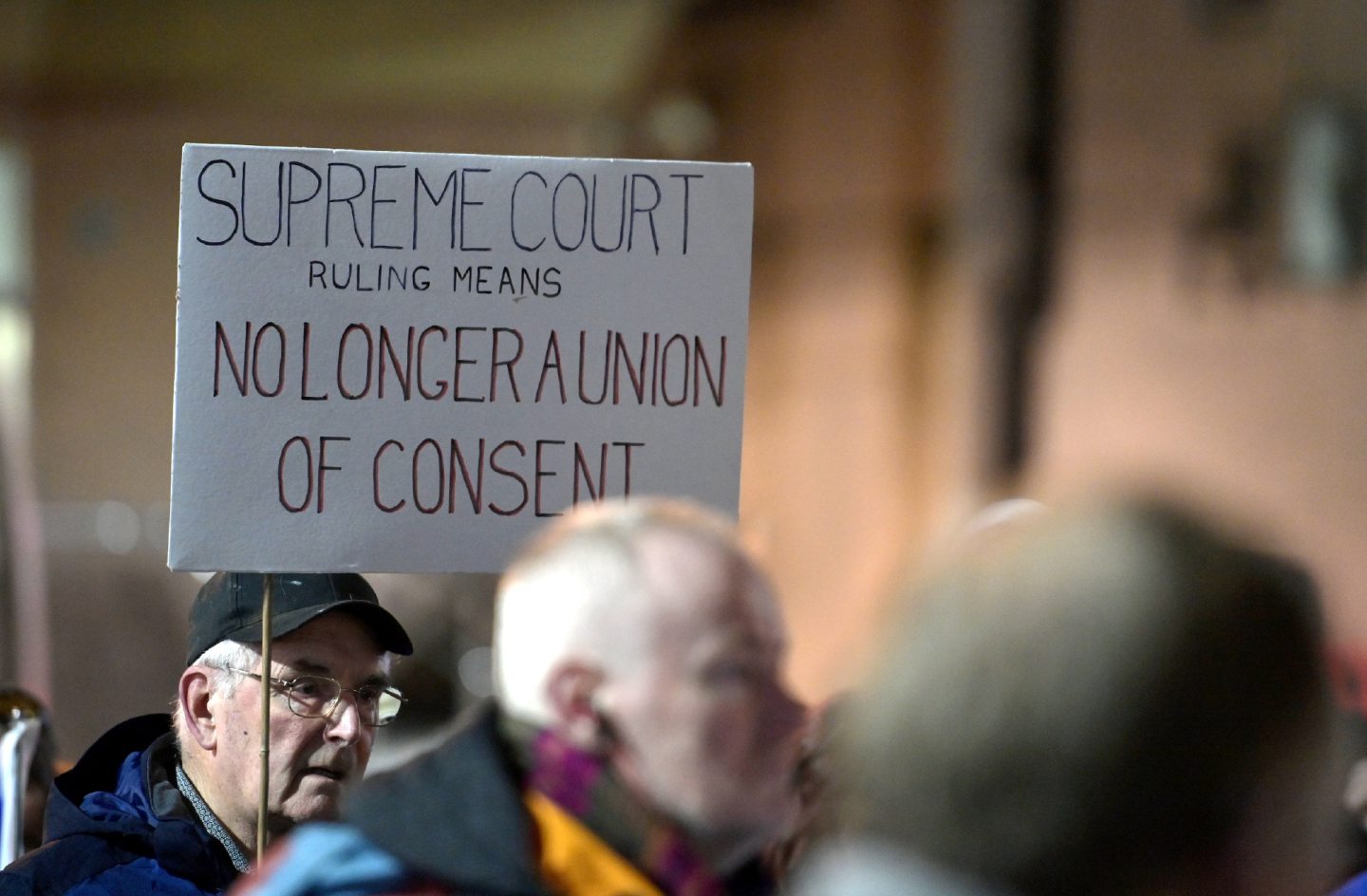“Freedom for Palestine. Freedom for Scotland. Freedom for everyone,” came the chant in Glasgow last weekend, from those attending a march in support of the break-up of the UK.
It struck a jarring note.
Gaza has obviously been constantly in the news since Hamas committed its atrocities last October and Israel launched its brutal invasion in response, but why conflate the Palestinian cause with Scottish separatism?
I think there is something both interesting and concerning going on here. The impetus to align “freedom for Scotland” with “freedom for Palestine” is an attempt to tap into the decolonisation ideology that underpins the hard-left’s interpretation of Israel and Palestine. Establish that conflation and, from there, the Scottish nationalist movement can be framed as part of a broader, global liberation politics narrative.
If you believe in self-determination for Palestine, then you must also believe in it for Scotland, too. Nobody is free until everybody is free.
There are some obvious problems with this. Sharing a democracy in a free and open society with people across Britain can, in no reasonable way, be framed as a form of oppression, never mind colonial oppression. It is not possible to be liberated from a liberal democracy. Separated, yes, but not liberated.
Context matters. In fact, context is everything. If you happen to find the level of inclusivity and expansiveness of your democracy intolerable, then one route out of that is certainly to make your democracy smaller and more exclusive. Another, arguably easier, solution is simply to become more tolerant of inclusive democracy.
Applying decolonisation ideology to Scotland is, obviously, ahistorical and offensive to people facing real subjugation. There are additional problems with it. As the historian Simon Sebag Montefiore elegantly outlined in an essay in the The Atlantic magazine last year, the ideology’s current engine is “the new identity analysis, which sees history through a concept of race that derives from the American experience”.
As interpreted for the current Gaza conflict, it is a “toxic, historically nonsensical mix of Marxist theory, Soviet propaganda, and traditional anti-Semitism from the Middle Ages and the 19th century,” says Sebag Montefiore.
He continues: “This leftist analysis, with its hierarchy of oppressed identities – and intimidating jargon, a clue to its lack of factual rigor – has in many parts of the academy and media replaced traditional universalist leftist values…”
The ‘architectonic illusion’
I have written previously on how the principle of national self-determination is not a sound basis for establishing a repeat of 2014’s independence referendum. The basic problem with asserting national self-determination as a first-order right is that multiple nations having strong connections to the same people or places is the norm, rather than the exception.
Attempts to resolve nationalist disputes via such a rigid principle are at the mercy of what the nationalist theoretician Rogers Brubaker calls the “architectonic illusion” – the notion that some kind of grand architectural framework built on the principle of self-determination can ultimately resolve nationalist conflicts.
Such is the difficulty of applying nationalist absolutism to settled democracies – or to the complex geopolitics of the Middle East
When two national communities have a special attachment to the same land, how do we decide which has the right to determine itself there? The group that was there first, or most recently, or the longest? The one that sees the land as most holy? Some other measure?
Similarly, for established democracies that are nations of nations, which nation has supremacy? “The right to national self-determination provides us with no standard against which to measure these arguments; it just increases the indignation and intransigence with which they are advanced,” argues another theoretician, Bernard Yack, in his book Nationalism and the Moral Psychology of Community.
Such is the difficulty of applying nationalist absolutism to settled democracies – or to the complex geopolitics of the Middle East.
We should resist simplistic culture-war binaries
Attempts to slot Scotland, or Scots, into the hierarchy of oppression associated with modern identity politics and decolonisation ideology are just as misguided as attempts to use national self-determination to settle communal disagreements over territory. It does, however, fit with the prevailing culture war zeitgeist, where politics so often comes down to working out who gets tagged as the oppressed and who the oppressor.
Over the past six months, the crisis in Gaza has become the latest western culture war flashpoint, with pro-Palestine or pro-Israel emerging as the new simplistic divide for the hard of thinking.
It seems the culture warriors of the Star Wars generations can take even the most complex situation and simplistically split it into a Rebel Alliance versus Galactic Empire narrative of goodies against baddies.
The real world, of course, is more complex than a Hollywood script. Just as we should resist simplistic culture-war binaries that divide us in senseless ways, we should also fend off this latest attempt to popularise Scottish separatism via broader association with decolonisation ideology.
John Ferry is a regular commentator on Scottish politics and economics, a contributor to think tank These Islands, and finance spokesperson for the Scottish Liberal Democrats



Conversation